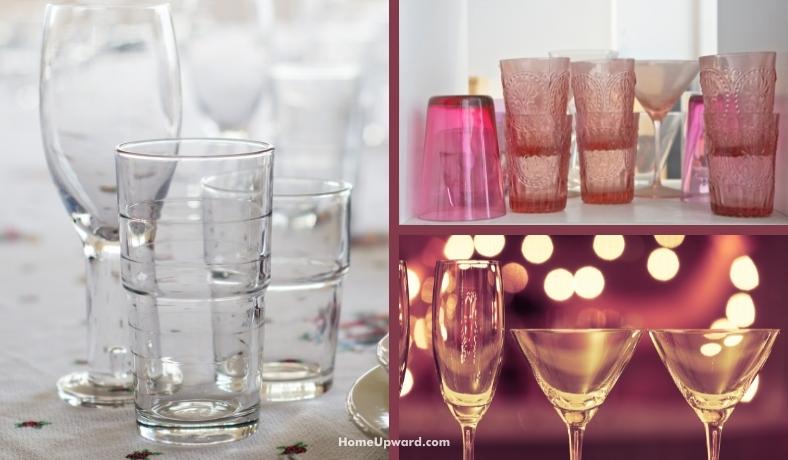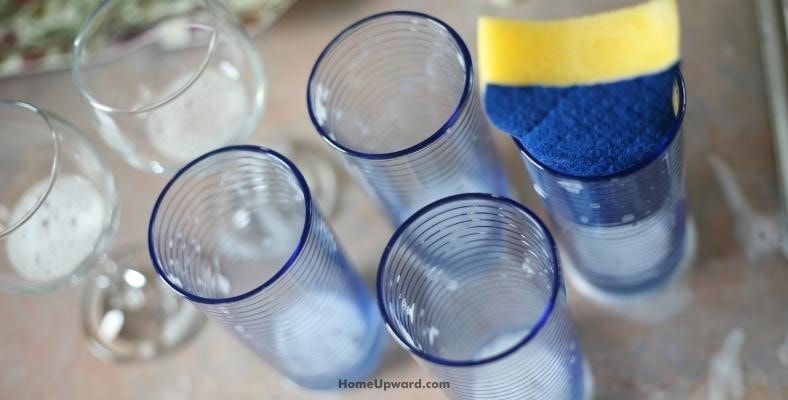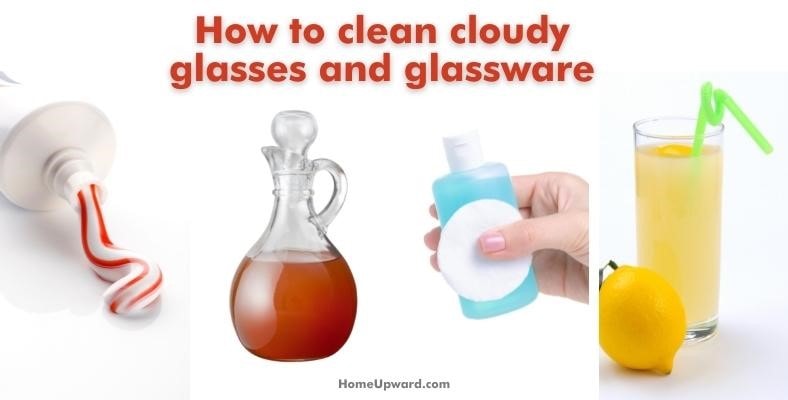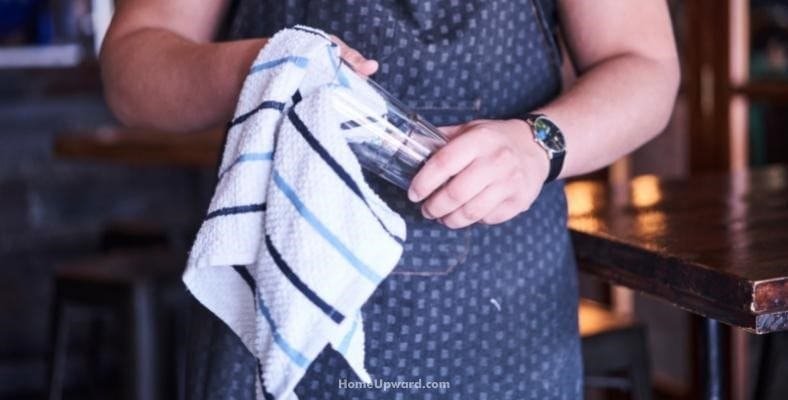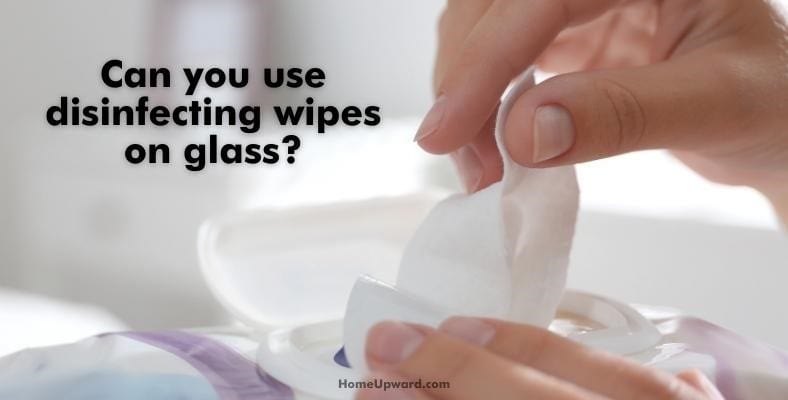Contents
Why Does Glassware Turn Cloudy?
There are two main reasons that glassware becomes cloudy.
The first possible reason is that the glassware has become etched over time. While an occasional scratch may not seem like a big deal, it can cause the glassware to look filmy.
Scratches occur from regular handling and use but can be more pronounced if a glass has run through a dishwasher.
The second reason glassware may be cloudy is from hard water stains. Unlike soft water, hard water can cause a build-up of mineral deposits.
Minerals like calcium and magnesium in hard water can cling to the glassware. This build-up creates a cloudy appearance on most types of glassware.
Why Do Glasses Turn Cloudy In the Dishwasher?
With hard water, the dishwasher detergent doesn’t clean glassware as efficiently. The detergent can’t bind with the mineral deposits from the water so they leave behind a filmy appearance on the glass surface.
Can Cloudy Glassware Be Restored?
If cloudy glassware is caused by etching or scratches sadly it can’t be repaired. However, if hard water has caused a cloudy appearance it won’t be an issue and there are several options you can use when it comes to restoring glassware to a sparkling clean appearance.
How To Clean Cloudy Glasses and Glassware
If hard water mineral deposits have created a cloudy appearance on glassware there are different ways to clean them. Cleaning cloudy glasses with toothpaste, vinegar, acetone, and lemon juice are all great options.
You can also use a magic eraser in a pinch.
1. Cleaning Glassware With Toothpaste
Since toothpaste is gentle enough to be used on teeth it can also safely clean glasses. Choose a basic toothpaste that doesn’t have whitening agents or other additional ingredients. Pastes work best in this case; avoid gel kinds of toothpaste.
Cleaning cloudy glasses with toothpaste is simple:
- Get an old toothbrush or any small brush with soft bristles.
- Apply a thin layer of toothpaste to the glass. Remember to do the inside of the glass as well.
- Scrub gently with the brush then rinse well with warm water to remove the toothpaste.
2. Cleaning Glassware Using Vinegar
An alternative to cleaning cloudy glasses with toothpaste is to use vinegar. Vinegar is an excellent option for cleaning glassware that has hard water mineral build-up. Here’s what to do:
- Fill up a large bowl, pot, or sink with vinegar.
- Let the glasses soak for a few minutes then rinse thoroughly to remove the strong smell of vinegar.
Alternatively you can use the dishwasher method:
- Place the drinking glasses on the top rack and add a bowl of vinegar on the bottom rack.
- Run the dishwasher without detergent on a regular cycle to clean the glassware.
- Let the glasses dry and cool before putting them away.
Why Does Vinegar Work To Clean Cloudy Glasses?
The reason that vinegar is such a great glass cleaner when it comes to removing that cloudy film is that it contains acetic acid. This acid works by dissolving the calcium and magnesium deposits that remain on the glasses.
What Kind of Vinegar Is Best for Cleaning Glass?
Choose a plain white distilled vinegar for cleaning glassware. White vinegar is ideal to clean cloudy glass and has the bonus of being very inexpensive.
3. Cleaning Glassware With Acetone
If hard water deposits don’t come off using toothpaste or vinegar, try using acetone to remove hard water stains. Almost all nail polish remover contains acetone which is more acidic and stronger than white vinegar.
Wipe the glassware with a soft cloth dipped in acetone, then use mild dish soap to wash thoroughly.
4. Using Lemon Juice To Clean Glass
Another option for cleaning glassware is to use lemon juice. Squeeze the juice from one lemon into a bowl filled with water, then soak the glasses for about 10 minutes.
The citric acid should dissolve any mineral deposits causing that cloudy appearance.
Tips on Keeping Glassware Sparkling Clear
While cleaning everything can be a big job, there are easy ways to maintain the sparkling appearance of glassware.
The best option is to avoid using the dishwasher and hand wash all glasses:
- Add a splash of vinegar to the hot water to help prevent build-up.
- Rinse the dishes well and dry with a microfiber cloth instead of air drying.
If using a dishwasher is necessary, add some vinegar to the rinse cycle to help clean the glassware. When the dishwasher finishes, open the door and let the glassware cool before putting it away.
Can You Use Disinfecting Wipes on Glass?
Don’t use disinfecting wipes for cleaning glassware. Most disinfectants contain chemicals that are harmful if ingested.
Many of these disinfecting wipes have disclaimers that they shouldn’t be used on surfaces that come in contact with food. Luckily, there are plenty of other options for cleaning glassware.

